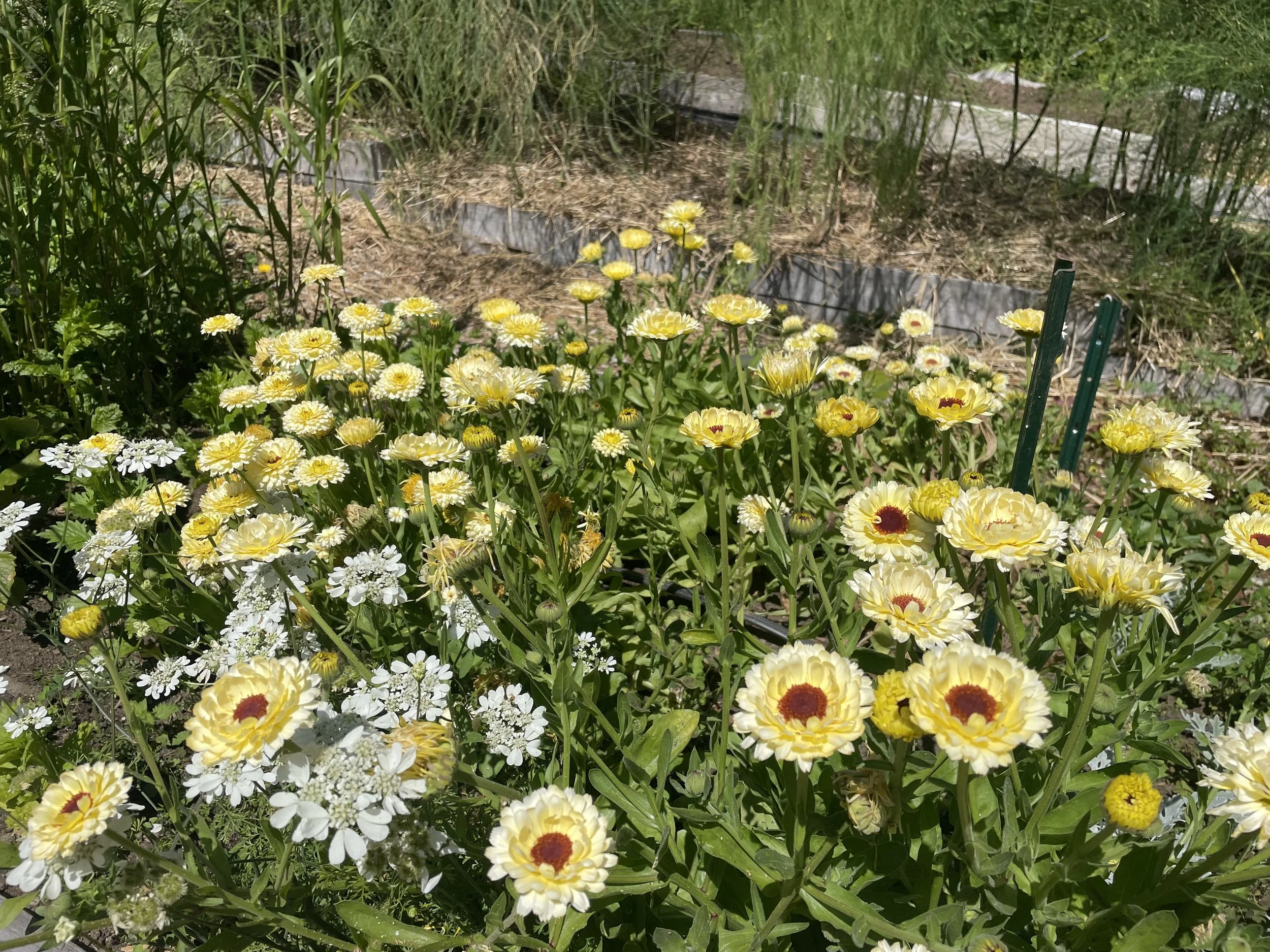
Blog
Growth After Loss: What Spring’s Metaphors Can Teach Us About Grief
Spring is often seen as a time of joy—buds on branches, longer days, and the promise of warmth returning. But if we look closer, spring isn’t just cheerful renewal. It’s also about struggle, transition, and slow emergence. It’s about things coming back to life—but not without effort.
Healing Together: Supporting Your Partner Through Grief and Loss
When your partner is grieving, it can be challenging to know how to offer support while navigating your own emotions. With patience, empathy, and open communication, couples can strengthen their bond and maintain connection during such a difficult time.
Cultivating Resilience: A Cultivating Resilience: Emotional Survival in Turbulent Times
Social and political disruptions create what we call "collective trauma" — a shared experience of distress that ripples through entire communities. The first step toward healing is recognizing that these emotions are normal and universally experienced.
Navigating Grief's Shadow on Thanksgiving
Thanksgiving, a time traditionally marked by gratitude, family, and feasting, can be a bittersweet experience for those mourning a loss. The juxtaposition of joy and sorrow can be overwhelming, making it difficult to navigate the emotional landscape of the holiday season.
Grieving in a Fast-Paced World: The Importance of Slowing Down
Many people feel like they’re falling behind if they take too long to mourn, or worse, that they’re being a burden if they don’t quickly put on a brave face and soldier on. But the truth is, grief is not a task you can “complete.” It’s a process. A slow, often messy process, that demands we give it space and not rush through it.
Collective Grief and the Political Climate
Political events, particularly during divisive times like election seasons, can trigger feelings of mourning and anxiety that ripple across communities. This type of grief is often layered with fear for the future and a sense of powerlessness in the face of societal changes. In moments of collective grief, finding ways to heal and rebuild trust in both ourselves and our communities is crucial.
The Echoes of War: Navigating Global War Talks and Collective Trauma
The talks of global war and the resulting collective trauma highlight the interconnected nature of our world. By acknowledging the psychological impact of these events and implementing strategies to support mental well-being, we can build a foundation of resilience that will help us weather the storms ahead.
Supporting Parents Through the Loss of an Infant: Compassionate Guidance for Friends and Family
The loss of an infant is an indescribable tragedy that no parent should ever have to endure. During such a heartbreaking time, the support of friends and family can be a lifeline. However, knowing how to offer meaningful and compassionate support can be challenging.
Finding Solace in Rituals
From ancient traditions to deeply personal ceremonies, rituals play a vital role in the grieving process, serving as anchors that help individuals navigate their journey of healing.
Signs That Grief Therapy Is Working: A Guide from a Seattle Grief Therapist
As a grief therapist here in the Greenlake area of Seattle, I've had the privilege of walking alongside individuals as they journey through their grief. One question that often arises during therapy is, "How do I know if this is working?" I want to shed some light on this question and offer some guidance on recognizing the signs that grief therapy is making a positive impact.
Finding Solace in Silence: How Meditation Aids in Processing Grief
In the face of grief, many seek solace in various forms of therapy, self-help techniques, or support groups. Among these, meditation has emerged as a powerful tool for processing grief and navigating the turbulent waters of loss.
Coping with Grief After Mass Shootings
The aftermath of mass shootings shatter communities, leaving individuals and families to navigate a complex maze of emotions. Coping with these tragedies is a unique challenge, as it involves processing not only personal grief but also collective trauma.
Navigating the Waves of Heartbreak: A Grief Therapist's Guide to Healthy Healing
Grieving the end of a partnership is a complex process that requires time, self-reflection, and compassionate self-care. In this blog post , I explore healthy practices to help you navigate the turbulent waters of heartbreak and emerge stronger, more resilient, and ready for the next chapter of your life.
Navigating Helplessness in Times of War: A Grief Therapist's Perspective
In the face of war, emotions run high, and the overwhelming sense of helplessness can be paralyzing. As a Seattle grief therapist, I understand that these tumultuous times can bring about an array of emotions, leaving individuals grappling with despair and uncertainty. It's crucial to acknowledge these feelings and, more importantly, to explore constructive ways to cope with the helplessness that often accompanies such global crises.
Navigating Grief During the Holiday Season: A Seattle Grief Therapist's Perspective
Grieving during December is a distinct experience, as the world around us seems to be bustling with joy while we may be grappling with an internal storm of emotions. Whether it's opting out of certain traditions or establishing new ones, finding a balance between honoring the past and embracing the present is a key component of navigating grief during December.
Grieving Over War: The Unspoken Heartache of a World in Conflict
As we reflect on the profound heartache of war, it's essential to remember that our shared humanity connects us in our collective grief. In doing so, we can work towards a world where war is no longer a cause for grief, but a testament to our capacity for compassion, understanding, and peace.
Embracing the Season of Grief: How Therapy Can Offer Solace in Fall
Autumn serves as a reminder that life is cyclical and that letting go is a natural part of the human experience. For many, this season can stir memories of loved ones who have passed away, relationships that have ended, or significant life transitions. It can be a bittersweet time when the beauty of transformation is intertwined with the ache of letting go.
How Childhood Trauma Shapes Grief: Unraveling the Complex Connection
The connection between childhood trauma and grief is intricate and multifaceted, with trauma survivors often facing unique challenges when dealing with loss. By recognizing these connections while engaged in grief therapy, one can better navigate the complex terrain of grief, ultimately finding healing and resilience in the face of loss.
The First Anniversary of Grief: Navigating the Waves of Emotion
As the first anniversary draws near, memories may come flooding back, both happy and painful. This time can be an opportunity to reflect on the progress made in healing and how the grief journey has shaped us as individuals.
When Someone you Know is Grieving the Loss of a Pet
Experiencing the death of a pet can be a heartbreaking experience, as they hold such a special place in our hearts and families. In this blog post, I’ll share some valuable insights and suggestions on how to offer comfort to someone mourning the death of their beloved companion.




















